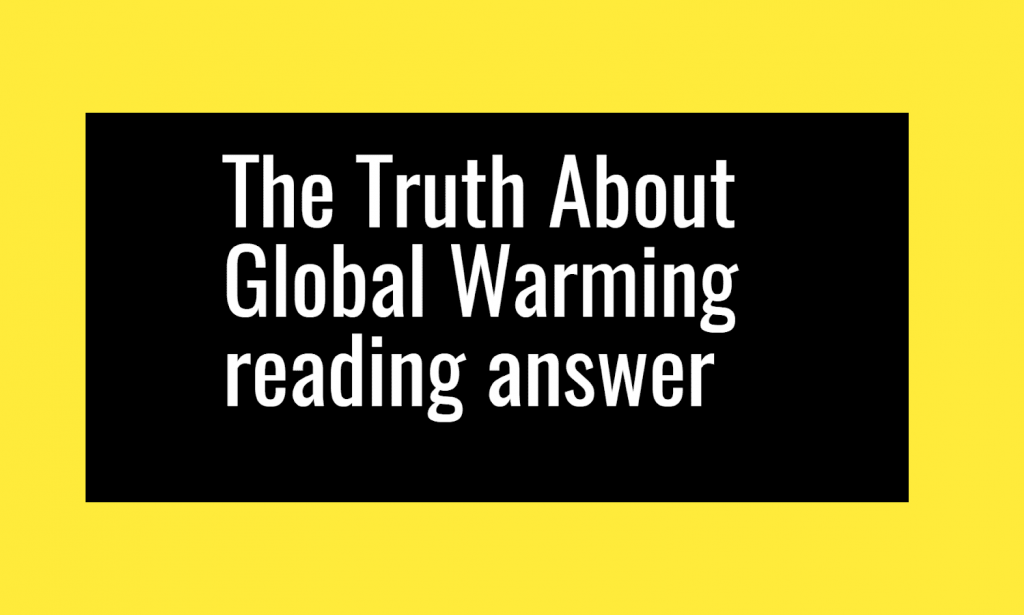Introduction :
Global warming is one of the most pressing issues of our time, and it is caused by the increase in the Earth's temperature due to human activities. It has been affecting our planet for several decades and has led to many devastating consequences. The effects of global warming are being felt all over the world, from melting polar ice caps to more frequent natural disasters to rising sea levels. Here are ten facts about global warming that you should know :
1-The Earth's temperature has increased by 1.8 degrees Fahrenheit since 1880.
While this may seem like a small increase, it has significant consequences. The increase in temperature is causing glaciers to melt, sea levels to rise, and extreme weather events to become more frequent. As a result, the melting glaciers and ice sheets are causing sea levels to rise, which can lead to flooding in coastal areas. Moreover, the rising temperatures can cause droughts, wildfires, and other extreme weather events.
2-The last three decades have been hotter than any other decade since 1850.
This trend is expected to continue as more greenhouse gases are released into the atmosphere. The greenhouse gases trap heat in the atmosphere, causing the Earth's temperature to rise. The increasing temperature has a significant impact on the planet's ecosystems, including the oceans, forests, and the Arctic. The melting of the Arctic ice is causing the sea levels to rise and is disrupting ocean currents, which can have a negative impact on marine life.
3-The Arctic sea ice has shrunk by 4.1% per decade since 1979.
This is a direct result of global warming and has significant consequences for the planet. The melting of the Arctic ice can cause sea levels to rise and can also disrupt ocean currents, which can have a negative impact on marine life. The melting of the Arctic ice is also affecting the habitat of polar bears, who rely on the ice for hunting and breeding.
4-Global sea levels have risen by 8 inches since 1880.
Rising sea levels are caused by melting glaciers and ice sheets, as well as the expansion of seawater as it warms. This can cause flooding in coastal areas, which can have devastating consequences for communities. The rising sea levels can also lead to the displacement of populations and the loss of biodiversity.
5-The amount of carbon dioxide in the atmosphere has increased by 40% since the industrial revolution.
This increase is due to human activities such as burning fossil fuels and deforestation. Carbon dioxide is a greenhouse gas that traps heat in the atmosphere, causing the Earth's temperature to rise. The increasing levels of carbon dioxide in the atmosphere are causing the planet's temperature to rise, leading to the melting of ice sheets and glaciers and the rising of sea levels. The increased carbon dioxide also causes the ocean's pH to decrease, a process known as ocean acidification. This process can have serious consequences for marine life, including the loss of coral reefs.

6-Deforestation accounts for 15% of global carbon dioxide emissions.
Trees absorb carbon dioxide and release oxygen, so deforestation means that there are fewer trees to absorb the carbon dioxide that we produce. Deforestation is also contributing to the loss of biodiversity, soil erosion, and can also lead to more severe flooding and droughts.
7-The average American produces 17.6 metric tons of carbon dioxide per year.
This is much higher than the global average and is due to the high consumption of fossil fuels in the United States. The United States is the second-largest emitter of greenhouse gasses, after China, and it is essential that the country takes measures to reduce its carbon footprint. The good news is that many American cities and states are taking action to address climate change, from investing in renewable energy sources to implementing policies that limit carbon emissions.

8-The 20 hottest years on record have occurred since 1981.
This is a clear indication that global warming is happening and that it is getting worse. The increasing temperatures are causing more frequent and severe heatwaves, wildfires, and other extreme weather events, which are causing significant damage to the environment and human health. These extreme weather events are also creating environmental refugees, people who are forced to leave their homes because of environmental disasters such as floods, droughts, and storms.
9-Climate change is causing more frequent heatwaves, droughts, and extreme weather events.
These events can have devastating consequences for communities, particularly in developing countries. The impacts of climate change are already being felt in many parts of the world, with increasing temperatures, changing rainfall patterns, and more frequent natural disasters. Climate change is also affecting food security, as changing weather patterns can lead to crop failures and reduced agricultural productivity.
10-Climate change is already affecting agriculture, fisheries, and water resources, and will continue to do so in the future.
This means that we need to take action now to reduce our carbon footprint and slow down the effects of global warming. We can achieve this by using renewable energy sources, reducing waste, and supporting policies that limit carbon emissions. We must work together at all levels, from individual actions to government policies, to address this global issue.
Conclusion.
Global warming is a serious threat to our planet, and we need to take action now to address it. By understanding the facts about global warming, we can work together to reduce our carbon footprint and slow down the effects of global warming. Remember, the Earth is our home, and it is our responsibility to take care of it. Let's take action now to protect our planet for future generations. By taking action, we can work towards a better future for ourselves and for generations to come.
should know :

يجب عليك تسجيل الدخول لتستطيع كتابة تعليق